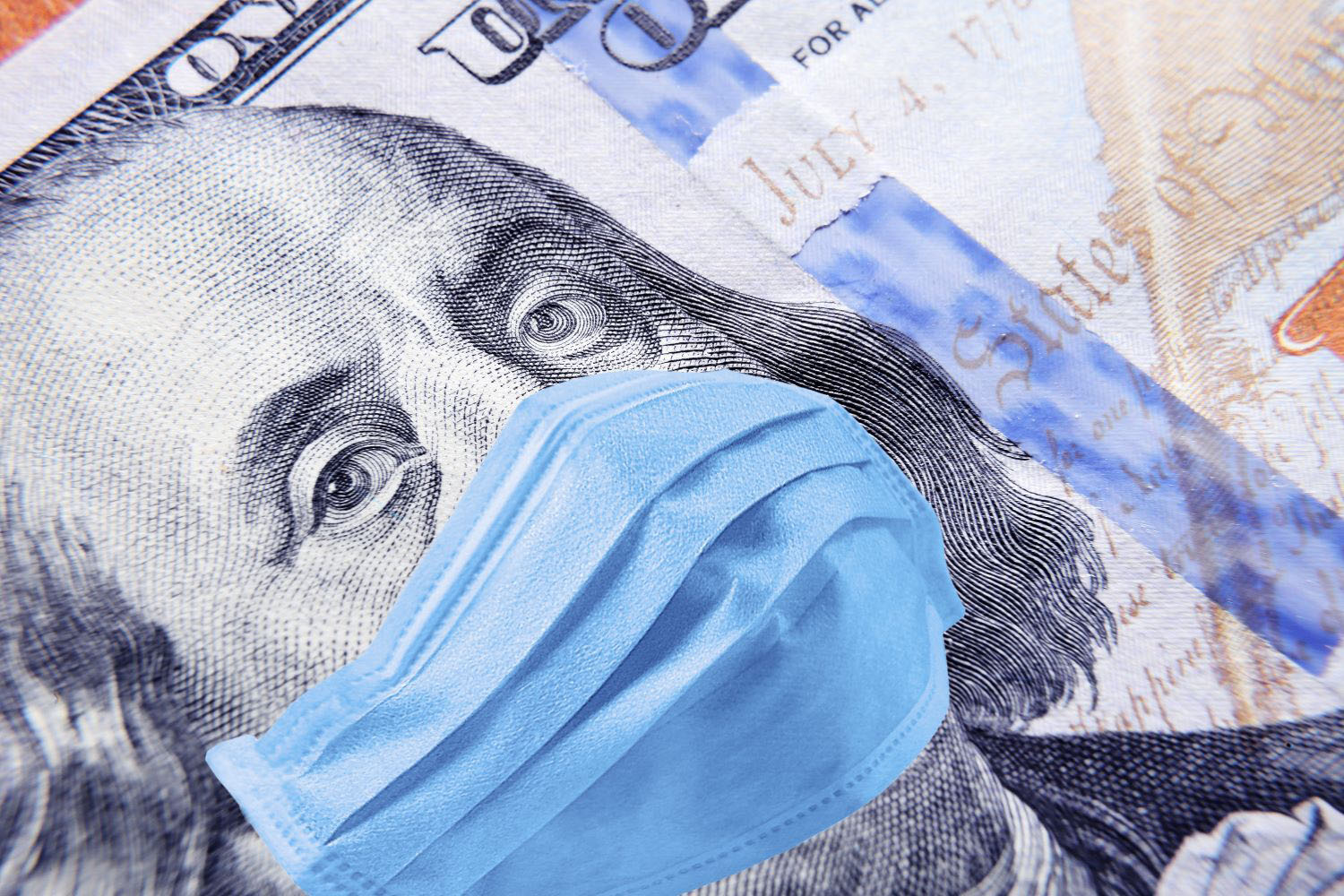Recommended

WORKING PAPERS
A growing evidence base points to the gendered impacts of the COVID-19 pandemic, with women and girls, including those in low- and middle-income countries, at greater risk of experiencing gender-based violence, adverse mental health effects, unemployment and income loss, and the consequences of rising poverty and food insecurity. In parallel, governments across the world, some with the support of development banks and other donor institutions, have either newly launched or expanded existing social protection programs in an effort to support their populations to weather the crisis.
Through CGD’s COVID-19 Gender and Development Initiative, the Social Protection Approaches to COVID-19: Expert Advice Helpline (SPACE) and ODI’s research project on social protection response to Covid-19 and beyond, we have each explored the ways in which the crisis has magnified various forms of gender inequality, how social protection efforts aim to address these inequalities, (or in some cases may risk exacerbating them), and propose recommendations to ensure an inclusive recovery, including by harnessing gender-informed social protection.
CGD analysis on COVID-19’s impacts and social protection response to date
In a new CGD working paper on the gendered dimensions of social protection, we find:
- Consistent with past health and economic crises, COVID-19 has caused mass unemployment, loss of income, and business closures, contributing to increased poverty, food insecurity, care burdens, and gender-based violence. Sex-disaggregated data is not yet widely available for many of these indirect effects (though there are exceptions), but both historical data from past crises and early evidence from the COVID crisis suggest that women and girls will bear the brunt of these negative impacts. Individual-level data on poverty and food insecurity will be necessary to fully capture the gendered impacts of COVID-19.
- Though longer-term impacts will take time to emerge, they may include a loss of girls’ human capital due to school closures and indirect health effects. Other likely impacts are a general downgrading of women’s working status, from formal to informal, or from cash to subsistence farming.
- Over 200 countries and territories have implemented social protection policies in response to the crisis. Of the social protection policies implemented by national governments, only 22.8 percent are gender-sensitive (i.e., in addressing the impacts of the crisis on women and girls). The majority (53 percent) of gender-sensitive measures fall under social assistance, 26 percent social insurance, and 20 percent are focused on unpaid care. Global data on sufficiency and implementation of these measures is lacking, so it is difficult to assess their impact, including on women and girls.
- In a review of World Bank, African Development Bank, and Asian Development Bank COVID-19 response efforts, CGD researchers find 64 projects (out of 195) with social protection components, of which 81 percent include gender-focused indicators or targets, though just 27 percent call for any form of intersectional data. Examples of targets include women comprising at least 50 percent of cash transfer recipients for a World Bank project in Central African Republic, and a target of 31 percent women-led households receiving in-kind food assistance for an AfDB project in Uganda. The most commonly deployed measures are cash transfers and food and other in-kind transfers. Only one project includes an indicator on childcare.
ODI & SPACE analysis of social protection responses in South Africa and Kerala, India
A new ODI/SPACE working paper examining the social protection responses to COVID-19 in South Africa and Kerala, India corroborates that COVID-19 has exacerbated gender inequalities and many women and girls have faced severe economic and social impacts of the crisis. Key findings of the social protection responses in these two contexts include:
- Pre-existing eligibility criteria and strong digital delivery systems in South Africa and Kerala were critical factors enabling a fast roll-out of some social protection benefits, which reached millions of women beneficiaries.
- Whilst the social protection response measures were a welcome support in South Africa given the severity of the impacts of the crisis especially on single women-led households, the level, adequacy and duration of the top-up provided to women through the Caregiver Support Grant were largely inadequate in the context of women’s loss of income, limited other financial support, their care responsibilities and the significant emotional toll the crisis took on women.
- In Kerala, India, a comprehensive package of multi-sectoral support was provided, illustrating the importance of learning from previous crises and setting up gender-responsive systems and capacity prior to a crisis. Kerala’s response—which included a combination of income, in-kind, health and psychosocial support—was facilitated by strong political leadership at all levels, preparedness plans in place, strong coordination between multiple actors at national and local levels (including organizations led by women, representing women’s rights, women’s member-based organizations), gender experts and gender data feeding into the response (including real time data from the community), the availability of social services at the local level, and the presence of a strong and engaged civil society, including women’s organizations, self-help groups and unions.
- However, our findings also indicate that policy decisions risk potentially negative effects on gender equality. Two key findings in this regard include: tying women’s entitlements to social protection to childcare benefits may result in undermining women’s individual entitlement to social protection (South Africa), and a continued exploitation of women’s voluntary or underpaid work in delivering the State’s comprehensive package of interventions (Kerala).
Our recommendations based on early evidence
In light of the gendered impacts of the COVID-19 pandemic, as well as both the benefits and risks associated with social protection measures mobilized in response to the crisis, governments and supporting donor institutions should:
- identify opportunities to support women and girls’ rights and empowerment in crisis response, including recognizing and redressing the frequently disproportionate and negative gendered effects of crises, ensuring that policy choices do not undermine gender equality, and that they are embedded as part of a broader strategy supporting women and girls’ empowerment;
- target cash benefits to women and girls, ensuring transfer programs are designed and implemented in a way that considers pre-existing gender gaps (e.g., in eligibility criteria and in access to bank accounts, mobile phones, and ID), reinforces their financial independence (for instance, by opening mobile savings accounts in their names), and allows women’s individual entitlement to social protection in their own right;
- harness digital platforms to deliver benefits to women and girls, while ensuring that information and communications technology access and knowledge are gender-equal;
- bundle social assistance with other interventions to address gender-specific constraints, including interventions that aim to address gender-based violence and that recognize and value underpaid or unpaid care work;
- use cash assistance as a medium-term strategy to promote women’s economic autonomy instead of halting or scaling down emergency social assistance programs;
- increase the collection of sex-disaggregated data on beneficiaries of social protection programs and monitor and evaluate the benefits of social protection measures by gender, as well as age and other demographic characteristics;
- improve single and social registries to be inclusive and cover the most marginalized women and girls. Methods to identify new recipients need to ensure that social registries have universal coverage and that socially excluded groups (including non-traditional families and gender minorities) are not left out;
- build partnerships and work meaningfully with specialist organizations working on gender equality and women’s rights to inform, plan and implement gender-responsive social protection, ensuring their critical work and expertise is fully and sustainably funded.
Rebecca Holmes is a Research Associate at the Overseas Development Institute and an independent consultant on gender equality and social protection. She is Deputy Team Leader for the joint FCDO-GIZ-DFAT SPACE service.
Abigail Hunt is a Research Fellow within ODI’s Equity and Social Policy programme, specialising in women’s rights and gender equality. Her current research focuses on the gendered dynamics of labour and care, informal economies, the future of work and social protection.
The Social Protection Approaches to COVID-19: Expert Advice service (SPACE) is implemented by the UK Foreign, Commonwealth and Development Office (FCDO), Deutsche Gesellschaft für Internationale Zusammenarbeit (GIZ) GmbH, and the Australian Government represented by the Department of Foreign Affairs and Trade (DFAT). It is funded by UK Aid, the German Federal Ministry for Economic Cooperation and Development (BMZ), and DFAT. All SPACE publications can be found here. The views expressed in this blog are entirely those of the authors and do not necessarily represent FCDO, GIZ or DFAT views or policies.
Disclaimer
CGD blog posts reflect the views of the authors, drawing on prior research and experience in their areas of expertise. CGD is a nonpartisan, independent organization and does not take institutional positions.
Image credit for social media/web: UN Women/Ryan Brown





